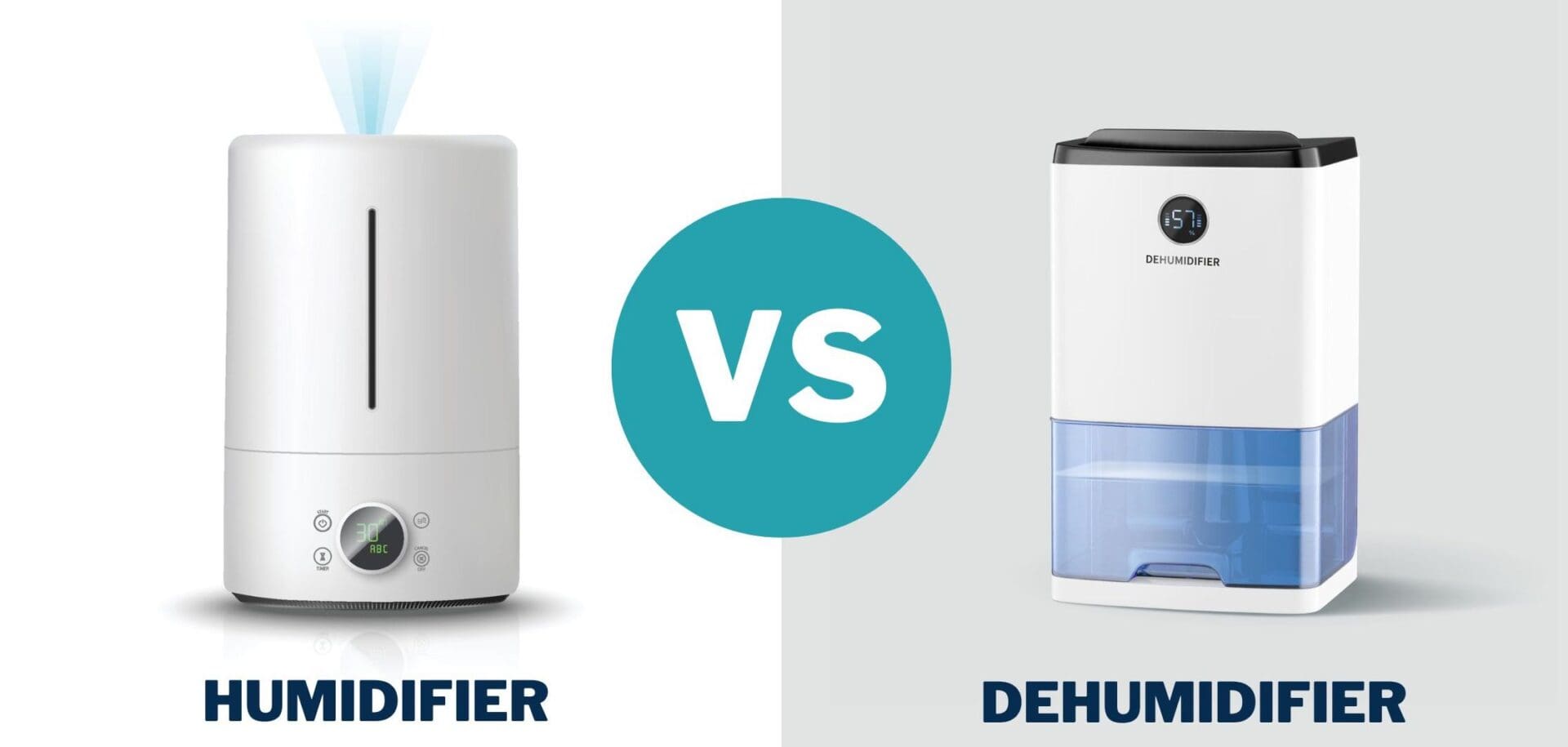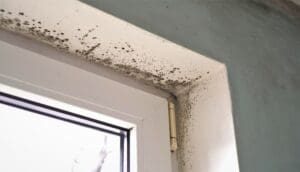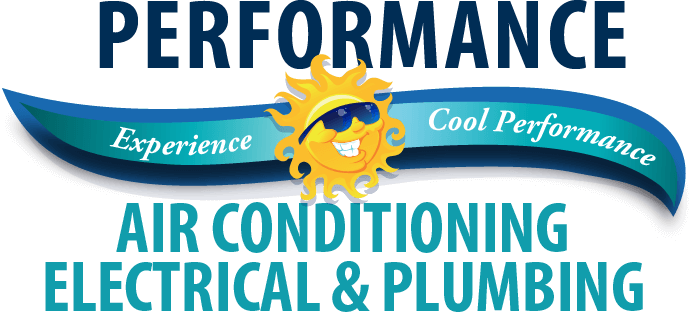
No matter where you live, you need to keep the humidity in your home between certain levels. This may have you wondering, do I need a humidifier or dehumidifier? No matter where you’re from, the only way to answer that question is to check the amount of moisture in your air.
Understanding Humidity
Humidity is a measure of the amount of moisture trapped in the air. It can impact things like how hot a summer day feels, how easy or difficult it is to breathe, and even mold growth in your home.
Here are some of the reasons why humidity is essential:
Effects on Health
Humidity can impact your health, both for good and bad. With high humidity, people with respiratory problems like asthma can find breathing more difficult. It can also interfere with your body’s ability to self-regulate and cool, leaving you dehydrated. In addition to that, too much humidity leads to mold growth and other bacterial dangers.
If the humidity is too low, other problems can arise. For one, low humidity dries out the mucus membranes in your nose and throat. Once that happens, your body is no longer as effective at filtering harmful pathogens. Other common issues with low humidity in a home include chronic dry skin, scratchy throat, chapped lips, dry eyes, and itchy nose.
Finding that range for yourself is critical.
What Is a Good Humidity Level?
The best humidity level depends on a lot of factors, including personal comfort and preference. Most experts will place the number between 30% and 60%. In this range, you have enough humidity to be comfortable but not so much that you should experience issues.
Many experts support reducing the variance to between 30% and 50% for best results. This will ensure you are comfortable and get the health benefits of having proper humidity. It will also keep the humidity from causing any environmental issues inside your home, like mold or bacteria growth.
Florida’s Average Indoor Humidity Levels
If you live in Florida, you deal with humidity on a regular basis. Water in the ocean evaporates and enters the air along the entire coast. Florida has a lot of beaches and, therefore, a lot of humidity in the air. What is the best humidity level for a home?
For Florida, keeping the humidity between 45% and 55% will be more energy efficient and still help to prevent the growth of mold. For those who aren’t used to the humidity in Florida, this may seem too high. If you try to dehumidify more than this, you are going to use a lot of power.
Signs of High Humidity

In order to answer the question, do I need a humidifier or a dehumidifier? We have to first figure out if we have high humidity in our home. There are some signs that you can look out for that will give you a good idea of what level your humidity is at. Here are some things to watch out for:
Musty Odors
When there’s too much moisture in the air, mildew and mold can grow. You might begin to notice that areas of your home have taken on a musty smell. High humidity can contribute to a lot of poor indoor air quality issues.
Mold
Mold can start growing almost anywhere as long as it is moist. Warmth also helps, but the main driver of mold growth is moisture. If your humidity is too high, it effectively turns parts of your house into the perfect environment for mold to grow in. Mold also comes with a number of problems.
It is difficult to remove mold once it has begun to grow and often requires a lot of manual labor and chemicals. Mold can also make allergies and respiratory conditions worse. Spores from mold can even make healthy people sick, depending on the kind of mold that is growing.
You may notice it first as a dark discoloration. Mold can take many forms, from tiny specks to large, furry structures. The humidity in your home will have a dramatic impact on how much mold you have to deal with.
Condensation
The more moisture in the air, the more condensation will be caused by any change in temperature. Anything that cools down air causes moisture to escape. It escapes by becoming droplets that coat everything from metal surfaces to carpets. This can be a serious problem.
Not only does condensation help spread and grow mold, but it can cause water damage. If you don’t notice the condensation, it can cause significant issues in basements and crawl spaces.
Signs of Low Humidity

While having too much humidity in the air can cause a lot of problems, not having enough is also bad. Here are some of the signs that you need to be aware of so you can tell if your home needs more humidity. You may notice these with or without running a heater or air conditioning.
Dry Skin
Low humidity strips the oil layer off our skin. That oil helps to protect the skin, and without it, you can get dry skin. Cracking, peeling, redness, tightness, and flakiness are all symptoms of having dry skin. It can be irritating, painful, and distracting. You may also fight that you become itchy.
Irritated Throat
Dry air can cause your throat to dry out. This can lead to a lingering cough or a scratchy, painful feeling in the throat. Low humidity can also help encourage the growth of bacteria, which can cause a number of cold and throat symptoms.
Static Electricity
Static electricity thrives in dry environments. In fact, in the deserts of the world, they even have electrical storms. If you notice a lot of popping and shock when you touch clothing or your pets, there’s a good chance you need humidity in the air.
Benefits of Dehumidifiers
Now that you know what to look out for, what are some of the benefits of having a dehumidifier?
Benefits for Indoor Air Quality
A dehumidifier will help remove allergens and prevent mold growth. This will, in turn, help reduce respiratory issues and allergies. The air that you breathe will have fewer contaminants in it.
Dehumidifiers vs. HVAC Systems
Dehumidifiers work a lot like air conditioning, but they are often less than half the cost of a central HVAC system. They can work with and alongside your HVAC system. They won’t work against it. In the end, while both do help remove humidity, their core purpose is different.
Conclusion
In the end, your environment and the air inside your home are what determine the answer to our original question, do I need a humidifier or a dehumidifier? In Florida, Performance Air Conditioning, Electrical, and Plumbing can help you decide which indoor air quality solutions you need. Schedule an appointment online today.

